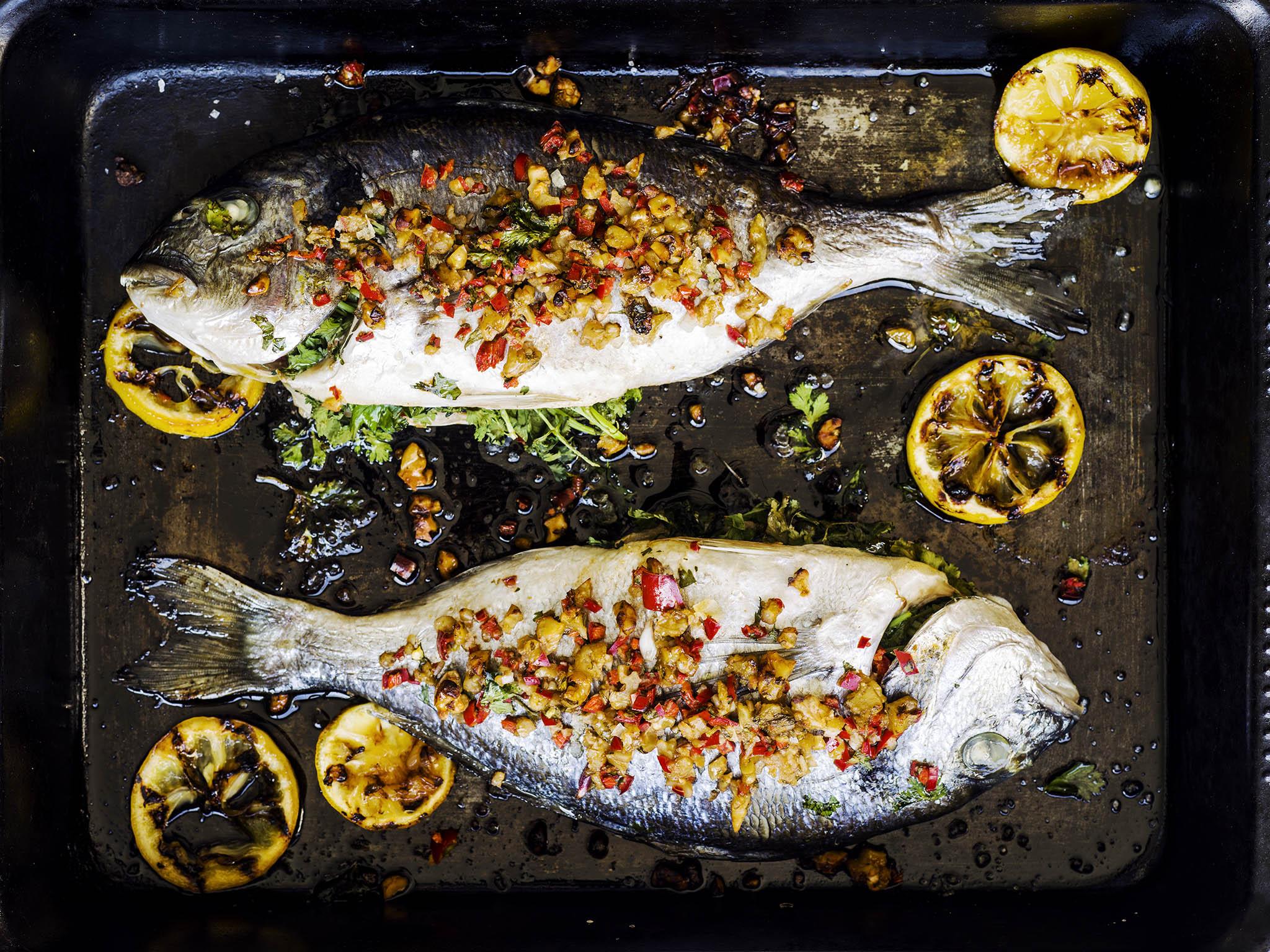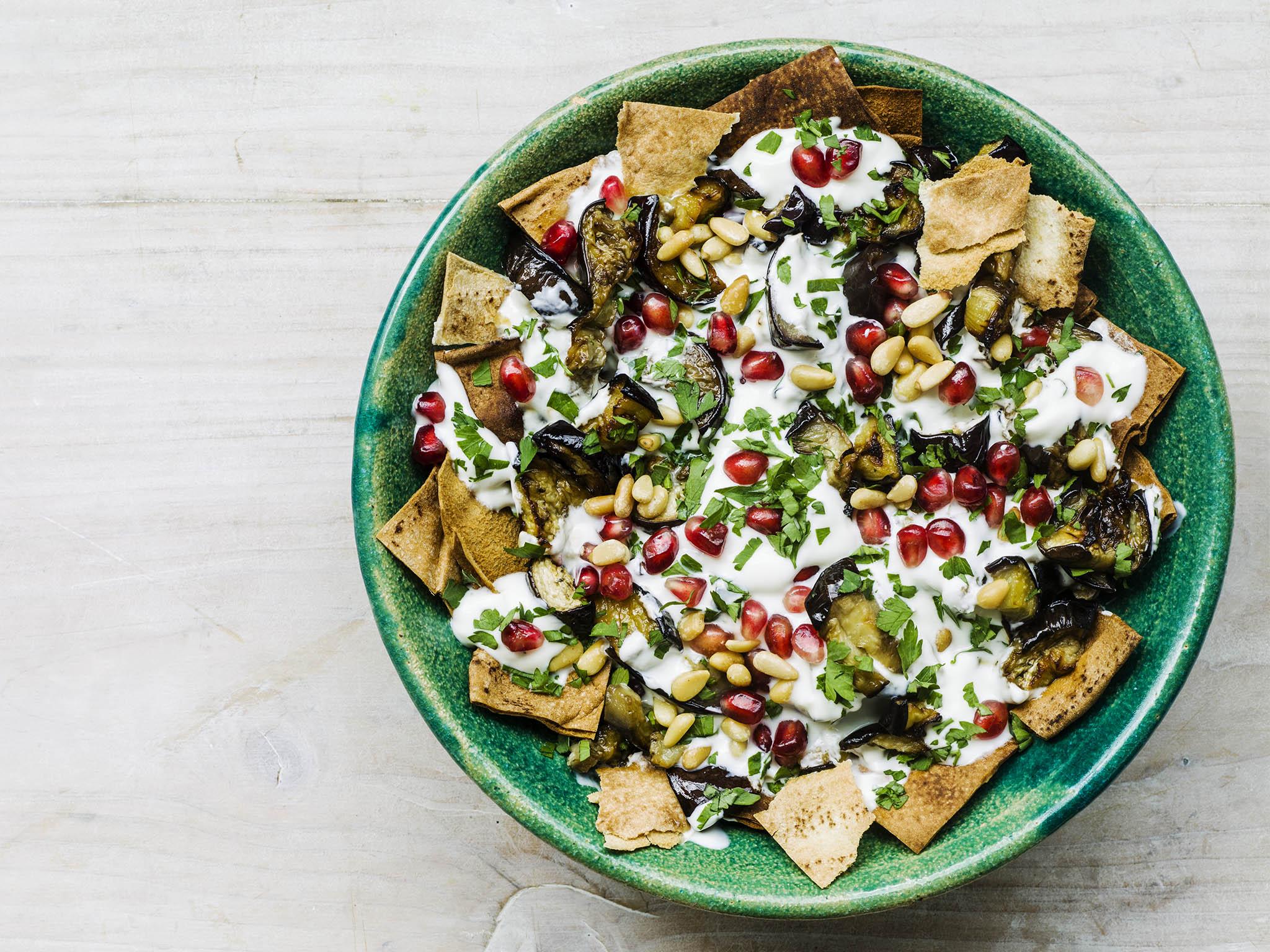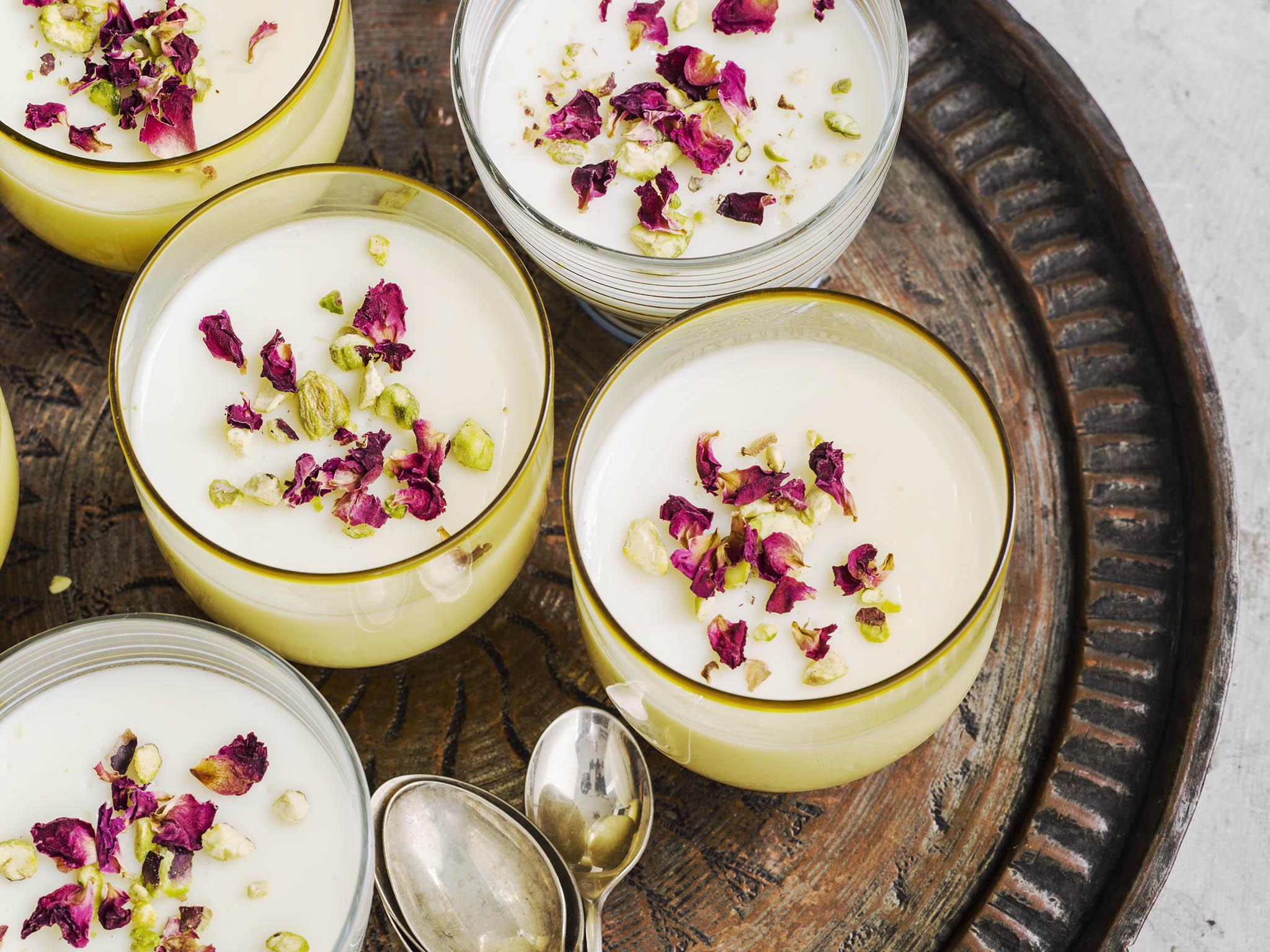Syria, Recipes From Home: From aubergine fetteh to milk pudding
Finding, sharing and refining recipes from home is what Itab Azzam and Dina Mousawi live for, for them it's a way of reconnecting to their homes after fleeing from war and fighting back with the only weapons they have: pots and pans

Your support helps us to tell the story
From reproductive rights to climate change to Big Tech, The Independent is on the ground when the story is developing. Whether it's investigating the financials of Elon Musk's pro-Trump PAC or producing our latest documentary, 'The A Word', which shines a light on the American women fighting for reproductive rights, we know how important it is to parse out the facts from the messaging.
At such a critical moment in US history, we need reporters on the ground. Your donation allows us to keep sending journalists to speak to both sides of the story.
The Independent is trusted by Americans across the entire political spectrum. And unlike many other quality news outlets, we choose not to lock Americans out of our reporting and analysis with paywalls. We believe quality journalism should be available to everyone, paid for by those who can afford it.
Your support makes all the difference.Food is perhaps one of the safest parts of Syrian heritage, as no matter the displacement of the country’s people, they will always endeavour to recreate the dishes that remind them of home.
Spiced Fish (Samaka Harra)
The beautiful coastal city of Latakia hasn’t been without its troubles since the Syrian civil war broke out in 2011; since then it has been a site of protest activities and military restrictions limiting movement in and out of the city. But despite that, it is still considered a safer place to be than Damascus, Homs or Aleppo, in each of which huge swathes of the city have been utterly annihilated, so many Syrians have moved to Latakia for a relatively safer life.
Of course, with coastal life comes coastal cuisine, so fish is obviously a much more common addition to the dinner table in these parts of the country. This oven-baked whole fish is packed with flavours, and when Fedwa suddenly pulled it out of her oven we were not only impressed but very pleasantly surprised. It was juicy, crispy and luscious all at the same time.
Serves 2
6 garlic cloves, chopped
2 red chillies, finely chopped
½ tsp ground cumin
40g walnuts, chopped
2 tbsp olive oil, plus extra for drizzling
salt and pepper, to taste
2 whole fish, such as sea bream or snapper
1 bunch of fresh coriander, roughly chopped, including the stems
1 lemon, plus ½ lemon, sliced
Heat the oven to 180°C/350°F/Gas mark 4. In a bowl, mix together the garlic, chillies, cumin, walnuts, 2 tablespoons of olive oil, salt and pepper.
Stuff the fish with this mix, reserving two tablespoons for later, then add a handful of coriander, saving some to garnish. Squeeze the lemon over both fish, with a drizzle of olive oil and some salt and pepper. Leave in the fridge to marinate for a good half an hour.
Place the fish in a large oven tray with the rest of the stuffing on top and a couple of slices of lemon, then bake in the oven for 30 minutes.

Aubergine Fetteh (Fetteh Beitinjaan)
Layering food on toasted bread with a yoghurt sauce is a distinctly Syrian speciality. As far as Syrians are concerned, no flavour has yet been found that can’t be enhanced by the addition of garlicky yoghurt and a bit of crunch.
Bread is considered a sacred gift from God in the Arab world, whether you are Muslim, Druze or Christian, and it’s a sin to waste it even after it has gone stale. That’s one of the reasons why ‘fetteh’ – literally, ‘breadcrumbs’ – is such a popular dish and can be made with chickpeas, aubergines, chicken or lamb. Whenever we make aubergine fetteh for friends it is always everyone’s favourite dish on the table.
Serves 4 as part of a mezze
3 aubergines
olive oil, for roasting and drizzling
salt
2 flatbreads or pittas
500g plain yoghurt
2 small garlic cloves, crushed
2 tbsp lemon juice
handful of parsley, roughly chopped
handful of pomegranate seeds
50g pine nuts, toasted
salt, to taste
Heat the oven to 180°C/350°F/Gas mark 4. Cut the aubergines into quarters lengthways and then slice them into 1cm chunks and place in a baking tray. Pour over a generous helping of olive oil and a sprinkle of salt then roast in the oven for approximately 40 minutes or until the aubergines are soft.
Brush the bread with olive oil and toast in the oven for about 10 minutes until nice and crispy. Then break it up into pieces. In a bowl combine the yoghurt, garlic and lemon juice.
When the aubergines are ready, take them out of the oven and allow to cool. Place them in a shallow bowl then pour the yoghurt mix on top. When ready to serve, sprinkle with the crispy bread, parsley, pomegranate seeds and toasted pine nuts.

Milk Pudding (Muhallabiyeh)
This is a very light dessert that is simple, cheap to make and can be prepared far in advance, which is our favourite kind of dessert when cooking for a large group.
They say the name of this pudding comes from the Umayyad Prince of Damascus, Al Muhallab Ibn Abi Sufra. One day, the bored potentate ordered his servants to make him something different, a special pudding, and this is what they came up with using the only ingredients they had in – milk, sugar, starch and mastic. Apparently the pudding then became known as the ‘milk of the princes’, but commoners soon caught on to how simple it was to prepare and it became known amongst them as the ‘milk of the commons’. Nowadays people flavour the milk with a variety of spices, depending on each individual’s taste.
This pudding has a smooth texture, with the nuts on top adding a crunch, which Syrians love. This is one of the most ubiquitous desserts in Damascus and one you would find everywhere in the city.
Serves 12
1 litre milk
200g sugar
3 tbsp cornflour, mixed with water
½ tsp vanilla essence
1 tbsp rose water or orange blossom water
20g pistachios, crushed
rose petals, to decorate (optional)
In a saucepan, gently heat the milk and sugar on a low heat, stirring regularly. Just before it boils, add the cornflour mix and stir constantly until it thickens, then add the vanilla and rose or orange blossom water. Once it reaches a nice thick consistency, pour the mix into individual bowls or trifle glasses and leave to cool.
Once cool, put them in the fridge to set for at least 2 hours. When you are ready to serve the pudding, sprinkle with the crushed pistachios and, if you want some extra colour, rose petals.
Syria: Recipes From Home by Itab Azzam and Dina Mousawi. Published by Trapeze, £25
Join our commenting forum
Join thought-provoking conversations, follow other Independent readers and see their replies
Comments